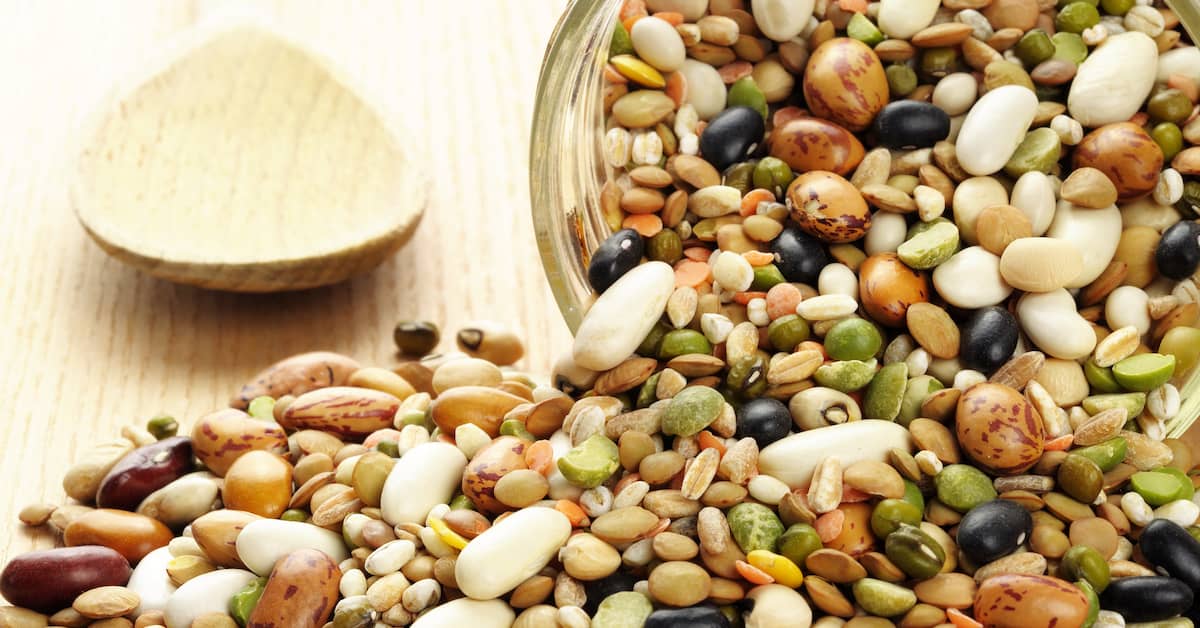
After they analyzed what these people were eating, they found differences among the various cultures and a variety of ways that they prepared their meals. However, there was one food all these long-lived folks had in common despite their differing lifestyles and locations throughout the world.
Now, many researchers consider this food to be "the most important dietary predictor of survival of older people of different ethnicities."1 The food I'm talking about is legumes.
Legumes are really a group of foods that includes beans of every type as well as soy, peanuts, peas, and lentils.
The researchers were carrying out a worldwide study on longevity called Food Habits in Later Life. As they collected data on the consumption of meat, dairy, cereals, fruit, nuts, fish, alcohol, fats, vegetables, and legumes, they mapped out how eating these foods was linked to longevity in people over the age of 70.
And, after adding up the resulting statistics, the researchers discovered that the only food group that was repeatedly linked to longer life was legumes.
Every Ounce Improves Your Longevity
As a matter of fact, in the statistics on long life among Swedes, Anglo-Celtic Australians, Japanese and Greeks, researchers found that the risk of dying during the seven years covered by the study went down by eight percent for every 20-gram increase in daily consumption of legumes. (And that's not a large amount – 20 grams is significantly less than the 28 grams in an ounce!)2 Of course, the legumes that were popular differed within each cultural group. Japanese favored soy, tofu, and miso. The Swedes were big on peas and brown beans. The Mediterranean's top legumes were lentils, chickpeas and white beans.Legumes Protect Your Organs
When it comes to promoting better health and longer life expectancy, researchers at Harvard say that because legumes contain so many helpful natural phytochemicals, fiber and micronutrients, they’re "natural health capsules, where the synergistic interaction of their many bioactive constituents may all favorably influence human physiology."3 The benefits of legumes include:Keeping your brain working better as you age: A three-year study in Asia of about 5,000 men over the age of 65 showed that those who consumed the largest amount of legumes (along with vegetables) ran the lowest risk of cognitive decline during the research.4Lowering the risk of diabetes: A study in Spain lasting more than four years that included more than 3,300 older people indicated that folks who ate the most servings of legumes enjoyed a 35 percent lower risk of diabetes during the study than the participants whose intake was comparatively meager.5 In this study, consumption of lentils produced the strongest anti-diabetes benefit.Reducing the chance of heart disease: A variety of studies have shown the heart-healthy effects of legumes. A 19-year study at Tulane found that people who ate legumes such as peas, beans or peanuts four times a week were 21 percent less likely to develop coronary heart disease compared to people who ate them less than once a week.6My Takeaway
All these benefits show why so many researchers who’ve conducted studies on aging recommend adding legumes to our meals. They're an inexpensive way to boost your longevity odds. Plus, if you've been eating too much processed food of late, legumes give you the feeling of being full, which may help you dodge the temptations of fast food and junk food more easily.- https://apjcn.nhri.org.tw/server/APJCN/13/2/217.pdf
- https://pubmed.ncbi.nlm.nih.gov/15228991/
- https://www.ncbi.nlm.nih.gov/pmc/articles/PMC3745769/
- https://pubmed.ncbi.nlm.nih.gov/22659995/
- https://www.clinicalnutritionjournal.com/article/S0261-5614(17)30106-1/fulltext
- https://pubmed.ncbi.nlm.nih.gov/11718588/
